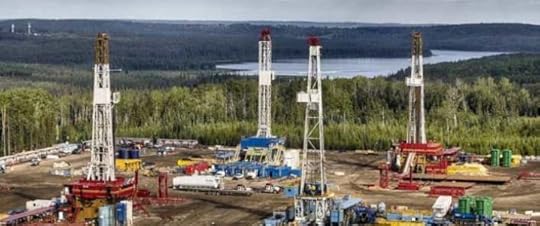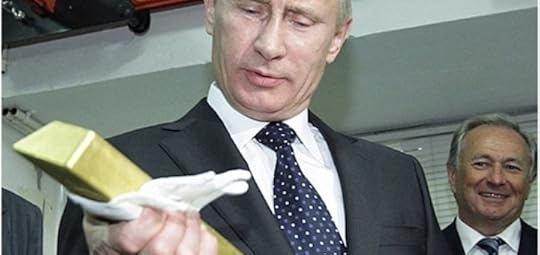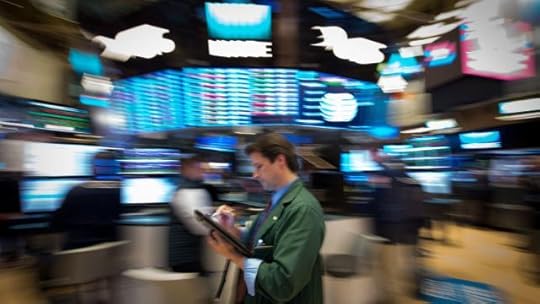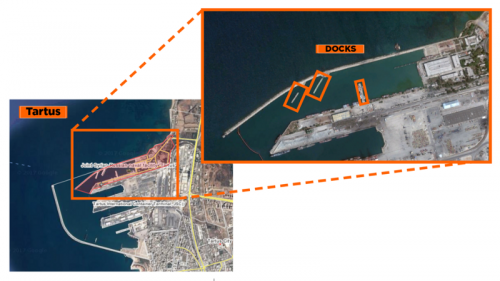Steve Bull's Blog, page 1221
December 28, 2017
If You Don’t Trust People, Then You Shouldn’t Trust Politics
If people can’t be trusted to make their own decisions, why would those same people be trusted to make decisions for the rest of us?
“Ordinary people can’t be trusted to make the right decisions about what’s best for themselves and others. That’s why we need government to decide for them.”
“And who will we trust to decide who these government officials are?”
“Ordinary people, of course. It’s only fair.”
I hope you see the irony here.
I also hope you see the irony in expressing mistrust in human nature while also expressing faith in the idea that human nature will somehow become trustworthy when those humans work for the government. If people can’t be trusted to make their own decisions, why would those same people be trusted to make decisions for the rest of us? This line of thinking has never made sense to me, and I hope it starts to make a little less sense to you.
Here’s one of my favorite clips where the economist Milton Friedman addresses this fallacy in response to Phil Donahue’s concerns about capitalistic greed:
The way we’re going to move forward in this world is not by finding a person who’s good enough to make bad systems work, but by investing in systems that incentivize even the bad person to make himself or herself accountable to creating value for others. And I know of no other system like that other than the free market.
If you’re interested in hearing me elaborate on this theme, check out this talk I gave at The Nassau Institute & The University of The Bahamas on the power of free markets and why we need to look beyond politics if we truly want to create a freer society:
…click on the above link to read the rest of the article…
Venezuela Will Back Its Cryptocurrency With 5 Billion Barrels Of Oil, Gold Deposits
Four months ago, in a not entirely surprising move meant to circumvent US economic sanctions on Venezuela, president Nicolas Maduro announced that his nation would stop accepting dollars as payment for oil imports, followed just days later by the announcement that in a dramatic shift away from the Petrodollar and toward Beijing, Venezuela would begin publishing its oil basket price in Chinese yuan. The strategic shift away from the USD did not work quite as expect, because a little over two months later, both Venezuela and its state-owned energy company, PDVSA were declared in default on their debt obligations by ISDA, which triggered the respective CDS contracts as the country’s long-expected insolvency became fact.
Then, in early December, clearly fascinated and captivated by the global crypto craze, Maduro shocked the world by announcing the creation of the “Petro“, Venezuela’s official cryptocurrency “to advance in the matter of monetary sovereignty, to make financial transactions and to overcome the financial blockade”.

Nicolas Maduro dances with supporters in Caracas, Venezuela, December 1, 2017
“The objective is to advance in the Venezuelan economy and overcome the financial blockade, this allows us to continue in the economic and social development supported by Venezuelan riches,” said the president, explaining that his government will make a cryptocurrency issue “backed by reserves of Venezuelan gold, oil, gas and diamond wealth.”
Still, as we said when he first commented on Venezuela’s bizarre foray into digital currencies, “it was not exactly clear how this PetroCoin would be backed by various natural resources when the whole point of cryptos is that they are not backed by anything, and as such it appears that what Maduro is trying to do is admit that the hyperinflating Bolivar has failed as a sovereign reserve, and the country is hoping to confuse its global trading partners enough into believing that it somehow had a new “bitcoin” on its hands, which like the real thing would then proceed to appreciate in value in the near future.
…click on the above link to read the rest of the article…
Oil Giants Are Increasingly Focused On Sustainability

Pioneer Natural Resources just published its first Sustainability Report, a sign that a growing number of oil companies are feeling the heat from investors over climate change.
Environmental groups have mostly targeted the largest oil companies, both because their sheer size means that they have a larger impact on global greenhouse gas emissions and because of the symbolic value of forcing energy titans to change their act. Activist investors, for their part, are concerned about the loss of shareholder value if oil companies fail to pivot with changing business environment.
After years of resisting its own shareholders, ExxonMobil recently caved to pressure and said that it would publish details of its exposure to various climate threats – regulatory threats, peak oil demand, low prices, etc. – although that came after a shareholder resolution passed earlier this year calling on them to do so.
Pioneer Natural Resources, a Texas shale driller and not an oil major like ExxonMobil, also sees the writing on the wall and it too was the target of shareholder resolution earlier this year. Pioneer’s Sustainability Report is a response to that vote.
“Climate change is an important concern for Pioneer and our stakeholders, and our strategy is to proactively manage our environmental footprint and emissions,” Pioneer’s CEO Timothy Dove said in a statement.
The acknowledgement of the threat of climate pressure from Pioneer is notable. “It is significant that Pioneer, perhaps the most influential company in the Permian, is publishing a sustainability report for the first time,” Andrew Logan, who directs the oil and gas program at Ceres, an organization that pressures companies to make more sustainable investments, told Axios. “It should lead to pressure on its peers to follow suit.”
…click on the above link to read the rest of the article…
Russia and China Lay Economic Foundation Based on Golden Rule

One of the many themes we support at The Daily Coin is the constant progress happening across the emerging markets, especially the nations involved the Eastern economic alliances like BRICS, BRI, SCO, EAEU and the like. These nations under the direction of China or Russia or a combination are laying the groundwork to be the driving force of the 21st Century and beyond.
We also continually report on gold moving from Western vaults to all points East. Most recently we discussed Kazakhstan and the importance of this nation both from a geographical position as well as natural resources like gold, rare earths and a wide variety of other elements within the borders of this growing nation.
Gold always has our attention as the rules/laws surrounding gold have not changed. While most people, especially in the West, have forgotten these rules that does not mean they have changed or been overturned.
One law that has stood the test of time is the golden rule – he who has the gold makes the rules. We also like the fact that JPMorgan, the man not the bank, stated in a congressional hearing that “gold is money and everything else is credit”. These two rules/laws working in conjunction with one another make for a formidable alliance. When you have natural rules/laws working together and nations begin forming alliances using these rules/laws as a foundation the rest of the world should take notice, but alias the Western world is more focused on “russia did it” than what Russia is actually doing.
“We (the Central Bank of the Russian Federation and the People’s Bank of China) discussed gold trading.
…click on the above link to read the rest of the article…
December 27, 2017
The Great Recession 10 years later: Lessons we still have to learn

© Getty
Ten years ago this month, a recession began in the U.S. that would metastasize into a full-fledged financial crisis. A decade is plenty of time to reflect on what we have learned, what we have fixed, and what remains to be done. High on the agenda should be the utter unpreparedness for what came along. The memoirs of key decision-makers convey sincere intentions and in some cases, very adroit maneuvering. But common to them all are apologies that today strike one as rather lame.
“I was surprised by the sudden crisis,” wrote George W. Bush, “My focus had been kitchen-table economic issues like jobs and inflation. I assumed any major credit troubles would have been flagged by the regulators or rating agencies. … We were blindsided by a financial crisis that had been more than a decade in the making.”
Ben Bernanke, chairman of the Fed wrote, “Clearly, many of us at the Fed, including me, underestimated the extent of the housing bubble and the risks it posed.” He cited psychological factors rather than low interest rates, a “tidal wave of foreign money,” and complacency among decision-makers. Timothy Geithner said that, “failures of foresight were primarily failures of imagination … our visions of darkness still weren’t dark enough.” And Henry Paulson explained that “we believed the problem was largely confined to subprime loans. … (Then) the problems were coming far more quickly.”Surprise, underestimation, poor imagination, and disbelief in an adverse outcome are hallmarks of the onset of a financial crisis.
…click on the above link to read the rest of the article…
“We’ve centralized all of our data to a guy called Mark Zuckerberg” says Pirate Bay Founder.

At its inception, the internet was a beautifully idealistic and equal place. But the world sucks and we’ve continuously made it more and more centralized, taking power away from users and handing it over to big companies. And the worst thing is that we can’t fix it — we can only make it slightly less awful.
That was pretty much the core of Pirate Bay’s co-founder, Peter Sunde‘s talk at tech festival Brain Bar Budapest. TNW sat down with the pessimistic activist and controversial figure to discuss how screwed we actually are when it comes to decentralizing the internet.
Forget about the future, the problem is now
In Sunde’s opinion, people focus too much on what might happen, instead of what is happening. He often gets questions about how a digitally bleak future could look like, but the truth is that we’re living it.
Everything has gone wrong. That’s the thing, it’s not about what will happen in the future it’s about what’s going on right now. We’ve centralized all of our data to a guy called Mark Zuckerberg, who’s basically the biggest dictator in the world as he wasn’t elected by anyone.
Trump is basically in control over this data that Zuckerberg has, so I think we’re already there. Everything that could go wrong has gone wrong and I don’t think there’s a way for us to stop it.
One of the most important things to realize is that the problem isn’t a technological one. “The internet was made to be decentralized,” says Sunde, “but we keep centralizing everything on top of the internet.”
…click on the above link to read the rest of the article…
Russia Establishes Two Permanent Bases In Syria To Host Nuclear Warships And Warplanes
Russia’s defense ministry has announced it is now in the process of establishing two permanent military bases in war-torn Syria after President Putin authorized prior deals with the Syrian government to move forward. Though Russia maintains merely up to ten military bases on foreign soil, the installations in Tartus and Khmeimim will be the most strategically located, allowing for a growing and permanent Russian presence on the Mediterranean, something which has already raised eyebrows in the West.
Though Putin formally announced the planned withdrawal of Russian forces from active operations in Syria in early December, there were parallel plans going back to at least early summer to maintain a smaller permanent presence based on an agreement with the Damascus government to host Russian forces for at least 49 more years, which includes the option of being prolonged further. Personnel and military hardware will be stationed at permanent Russian bases in Tartus and Khmeimim – both of which are on or near the Mediterranean.
Satellite image of Russia’s facility at Tartus Navy docks. Left: (Source: WikiMapia); Right: (Source: GoogleMaps)
According to Russian media reports, Defense Minister Sergey Shoigu stated at a ministry meeting on Tuesday, “We have started the process of formation of our permanent forces [in Syria].” Though Tartus has operated as a Russian naval port since 1971 (referred to as a Material-Technical Support Point and not a “base”) and was until recently minimally staffed mostly by civilian contractors, it will reportedly undergo a massive transformation and expansion, which is to include the capability of hosting nuclear-powered ships.
…click on the above link to read the rest of the article…
Civil Servants Are Deliberately Destroying Documents From The UK’s National Archive
In yet another galling example of historical revisionism put into practice, the Guardian reported Tuesday that thousands of documents from the National Archives have gone missing in recent years – and some may have been deliberately destroyed by civil servants hoping to purge unflattering details about the UK’s abuses of power from the historical record.
Per the Guardian:
Thousands of government papers detailing some of the most controversial episodes in 20th-century British history have vanished after civil servants removed them from the country’s National Archives and then reported them as lost.
Documents concerning the Falklands war, Northern Ireland’s Troubles and the infamous Zinoviev letter – in which MI6 officers plotted to bring about the downfall of the first Labour government – are all said to have been misplaced.
Other missing files concern the British colonial administration in Palestine, tests on polio vaccines and long-running territorial disputes between the UK and Argentina.
Almost 1,000 files, each thought to contain dozens of papers, are affected. In most instances the entire file is said to have been mislaid after being removed from public view at the archives and taken back to Whitehall.
The controversy echos another incident from 2013 when a Guardian investigation found that the Foreign Office was storing documents that shed light on the brutality of colonialism from the in a secret bunker, where they would be safe from the public’s prying eyes. According to public records, many of the files that have gone missing this time around were “loaned out” to employees of the Foreign Office, which was responsible for the 2013 incident. Many others were taken by representatives of the Home Office.
The photo above shows a group of elderly Kenyans who were detained and abused during the Mau Mau insurgency
…click on the above link to read the rest of the article…
Resistance if Futile: The Borg Empire’s State of Mind
Despite claims to the contrary, it is extremely difficult to differentiate between reality and the Borg Empire’s State of Mind. If you live and die in a water filled fish bowl where algae, barnacles and various other vision obscuring detritus slowly accumulate on the circular glass wall, the worlds both inside and out are perceived in very specific ways.
Have you ever experienced an epiphany, that moment of clarity and realization where nothing has changed, but everything is different? I’m not speaking of a Eureka moment when sudden insight is gained into a particular issue or problem. Rather I speak of that moment when our focus suddenly shifts from the green slime on the wall to some or all of what lay beyond.
Personally I’ve experienced it three times in my life, four if you count that wonderful acid trip way back when my young mind was still flexible enough to comprehend the impossible. The problem presents when returning to this distorted reality thoroughly shaken and awestruck, but still capable of functioning in an insane world while not clearly remembering, or comprehending, the real one.
Not everyone can re-adjust to our horribly distorted and altered reality once near perfection is revealed. Then again, well adjusted and functioning within the Borg Mind most definitely doesn’t mean we are healthy and sane.
Each of my visits to the other side of the glass divide was eventually followed by back sliding into the comfortably numb black abyss of the Collective Mind. Cognitive leaps are usually an accumulation of carefully digested baby steps, often one or two forward and on occasion one or two back. True progress is measured in experience units, not in accumulated pieces.
…click on the above link to read the rest of the article…
Systems That Suck Less
Last week’s post on political economy attracted plenty of disagreement. Now of course this came as no surprise, and it was also not exactly surprising that most of the disagreement took the shape of strident claims that I’d used the wrong definition of socialism. That’s actually worth addressing here, because it will help clear the ground for this week’s discussion.
The definition I used, for those who weren’t here last week, is that socialism is the system of political economy in which the means of production are owned by the national government. Is that the only possible definition of socialism, or the only definition that’s ever been used? Of course not. The meanings of words are not handed down from on high by God or somebody; the meanings of words are always contested among competing points of view, and when a word has become as loaded with raw emotions as the word “socialism” has, you can bet that every one of the definitions you’ll be offered is slanted in one direction or another.
That’s just as true of the definition I’ve offered, of course, as it is of any other. I want to talk about who owns the means of production in society, since this is arguably the most important issue in political economy, and it so happens that socialism, capitalism, and many other systems can be defined quite neatly in this way. A century ago, when it was still acceptable to talk about systems of political economy other than capitalism and socialism, the definition I’ve proposed was one of the most common. You don’t hear it very often now, and there’s a reason for that.
…click on the above link to read the rest of the article…





